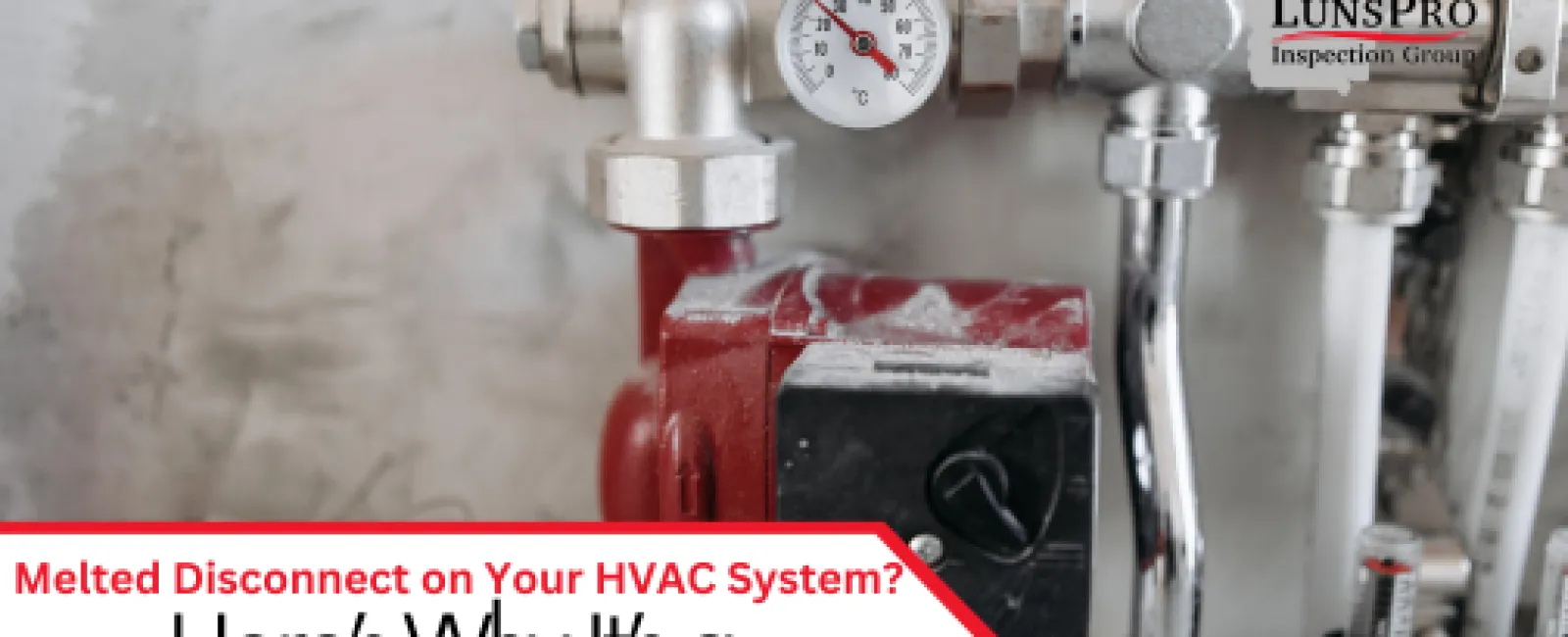Home inspections aren't just about checking boxes—they're about uncovering hidden hazards that could affect safety, efficiency, and long-term value. During a recent inspection, our team discovered a melted disconnect at the electric air handler in a home's crawl space. While this may sound like a small detail, it has serious implications for both the electrical system and overall home safety.
What Is an HVAC Electrical Disconnect?
An HVAC disconnect is a safety device that allows power to be quickly shut off to your heating and cooling equipment, especially during maintenance or emergencies. It is typically located near the exterior HVAC unit or, as in this case, by the electric air handler, often found in crawl spaces, attics, or utility closets.
This switch is essential for protecting technicians and preventing electrical accidents when the system is being serviced. It also ensures your system complies with local building codes and national electrical standards.
What Does It Mean If the Disconnect Is Melted?
A melted disconnect is not just a sign of wear and tear—it's a red flag that should be addressed immediately. Here are some common reasons a disconnect might overheat or melt:
1. Overloaded Circuit or Electrical Arcing
If the electrical demand on the circuit exceeds what it's designed to handle, excessive heat can build up. Over time, this can melt the plastic housing or internal components of the disconnect.
2. Loose or Corroded Connections
Loose wiring or corroded terminals can cause resistance, which generates heat. In a humid or damp crawl space environment, corrosion is especially likely to occur.
3. Improper Installation or Sizing
If the disconnect is the wrong size for the unit it's connected to, or if it was poorly installed, the risk of overheating increases dramatically.
4. Environmental Damage
Crawl spaces can be subject to moisture, pests, and extreme temperature fluctuations—all of which can compromise electrical components over time.
What We Found During the Inspection
Our inspector was evaluating the HVAC system when he noticed the disconnect at the air handler showed visible signs of melting and heat damage. It had likely overheated at some point and no longer appeared to be in safe working condition.
The issue was documented in the inspection report with a recommendation to have a licensed electrician evaluate and repair it.
Why It Needs Immediate Attention
A damaged disconnect is more than a code violation—it's a fire hazard. When electrical components overheat, they can ignite surrounding materials or cause system failure. In the case of HVAC systems, this could lead to:
Complete system shutdown
Electrical shock risk
Increased utility bills due to inefficiency
Long-term damage to HVAC equipment
Potential home fire
What Should Homeowners and Buyers Do?
If you're a homeowner, you should have your HVAC system inspected at least once a year. If your system is located in a crawl space or attic, make sure to include those areas in your home maintenance checklist.
If you're a home buyer, this is the type of issue that underscores the importance of hiring a professional home inspector. Hidden hazards like these can result in unexpected repair costs or safety risks if not caught before closing.
In either case, if a melted disconnect is discovered, the next steps should include:
Immediate deactivation of the unit if it's still running.
Consultation with a licensed electrician to determine the extent of the damage.
Replacement of the disconnect and potentially any wiring or components impacted by overheating.
The Value of a Thorough Home Inspection
At LunsPro Inspection Group, our inspectors go beyond the basics. We inspect everything from the roof to the crawl space—because that's where problems often hide. Electrical issues like a melted disconnect are exactly why it pays to invest in a high-quality home inspection.
Whether you're buying, selling, or simply maintaining your home, our team is here to ensure you have the knowledge and confidence you need to make smart decisions.
Schedule Your Inspection Today
Protect your investment and your safety with a comprehensive home inspection from LunsPro. We serve homeowners and real estate professionals across Georgia with services including:
Residential and Commercial Inspections
Thermal Imaging and Drone Inspections
Sewer Scope and Septic Inspections
Mold, Radon, and Air Quality Testing
Pool and Spa Inspections

